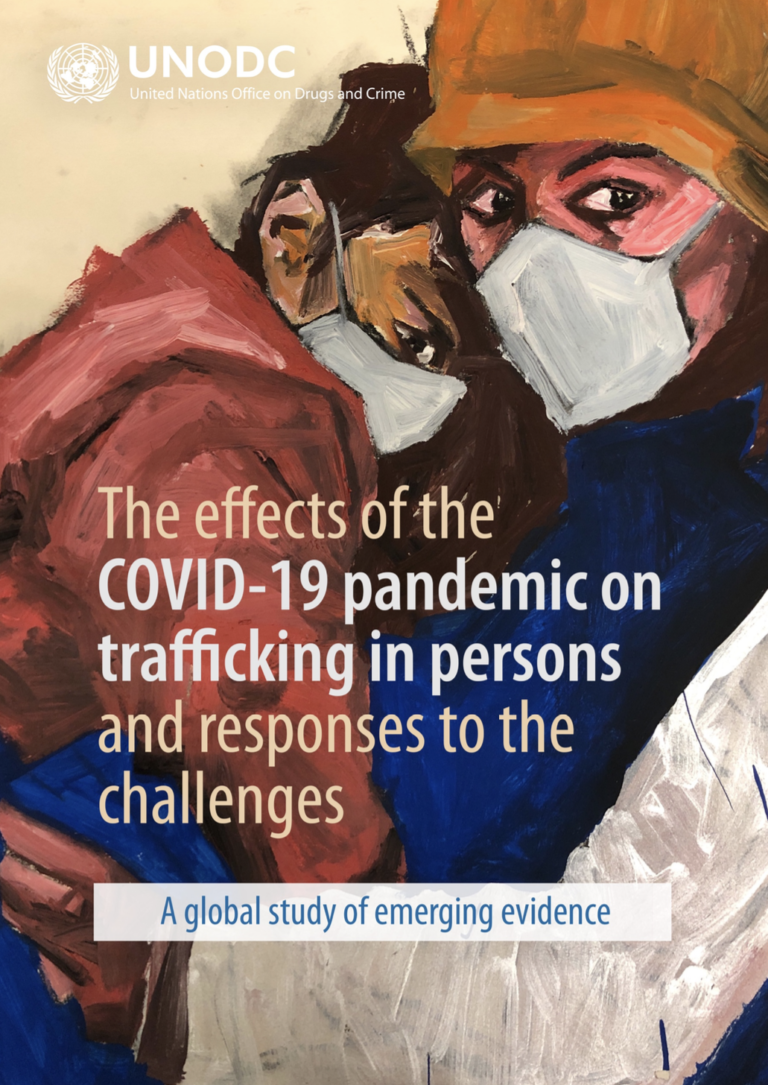The COVID-19 pandemic has affected countries and people globally; it has also exacerbated existing disadvantages, poverty and vulnerabilities. The initial measures to contain the health crisis have not always considered those most vulnerable and affected by violence and exploitation. This report seeks to bring to the forefront the challenges for anti-trafficking during the pandemic and share promising practices and lessons learned in order to prepare for a more inclusive crisis-response in the future, leaving no one behind.
In particular, the report explores the effects of the COVID-19 pandemic on
- the scale and characteristics of trafficking in persons;
- victims of trafficking; and
- frontline organizations (law enforcement, prosecution services, the judiciary and the protection and reintegration services provided by non-government organizations).
The report also examines the different initiatives developed in response to the challenges created by COVID-19 and identifies promising practices.

